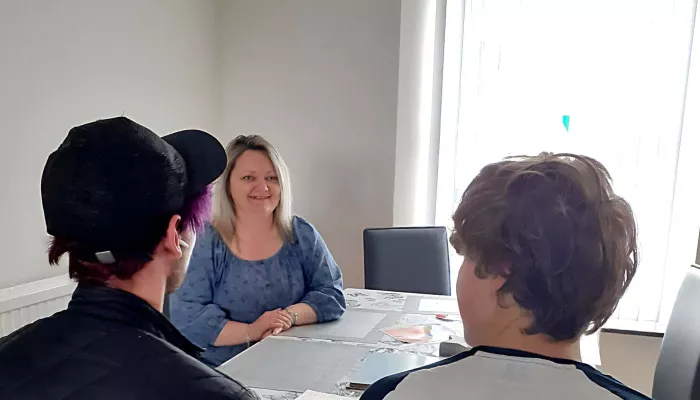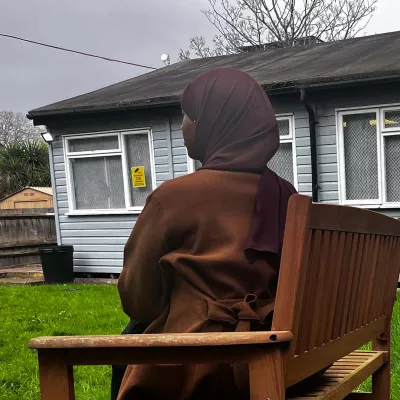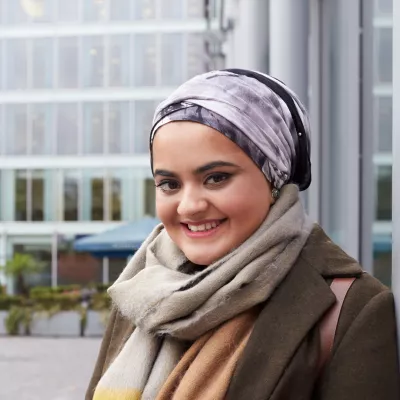Paul and Ben are brothers who were reunited through the care system at one of our 16-18-year-old therapeutic services in Yorkshire. For Carol, the Deputy Service Manager, it was essential to manage this situation carefully in order for it to succeed.
When siblings are separated
In the UK, around a third of children taken into care are separated from their siblings. This is due to the lack of appropriate foster placements. (Data obtained from Action for Children). It can be extremely traumatic for children to be separated from their parents, this can be further compounded by being separated from siblings too.
At Centrepoint, we often receive referrals from local authorities for young people over 16 who are no longer able to live at home or who are between the ages of 16-18 and are passed on to the leaving care team who can refer into Centrepoint as part of that pathway into independence. There have been many instances where siblings are reunited at Centrepoint or are placed in supported accommodation together, but this has to be managed carefully. Reuniting siblings can be complex and has the potential to trigger past trauma or rivalry.
Preparing Paul and Ben to be reunited
Recently, in one of our therapeutic services for 16-18-year-olds in Yorkshire, a referral came in for a sibling of one of the existing residents. For, Deputy Service Manager, Carol Cordingley, this was a situation that couldn’t be rushed and had to be done collaboratively, making sure to with the young people involved. Here, she talks about how she managed this delicate, but positive situation.
On a Friday afternoon Carol received a referral for Paul’s brother to come to the service she manages. The social worker had been so happy with the work they had done with Paul and wanted them to work with Ben. Both boys had been victims of abuse.
Carol was keen to find out from the local authority whether they had spoken to Paul about this.
“How would Paul feel to just come home and his brother has moved in with no warning or preparation?” she asks, “It could potentially be a disaster. We don’t know about their relationship and whether there were any issues.”
By delaying Ben moving in over the weekend, Carol was able to do some work to prepare Paul and asked that the social worker do the same with Ben. She ensured that Ben had somewhere safe and stable over the weekend and offered their crash pad if that was not possible.
Her reasoning for this was simple: “This place has been Paul’s home for nine months and we can’t just disrupt him like that without preparing him as it could trigger past trauma. After making so much positive progress, I couldn’t let that happen.”
So Carol took the time to talk to Paul about his feelings and ways in which she could support him. He decided that he was fine with it, but she says that he really appreciated being consulted, it made him feel like he had some control over the situation and that he was prepared for the change.
Managing the relationship
When Ben moved in, Carol and the team worked with both of them to support their relationship and ensured they always pointed out the positive ways in which they were bonding. The results of this preparation and care have made the transition for both boys much easier.
“It was so important that we did this right and fully prepared as we didn’t know how either of them would feel about it. It’s so important that young people are consulted and feel empowered without things just happening to them. We now have a successful outcome because of that preparation,” she enthuses.
For Carol, it’s about getting the relationship and bond to a point where they are going to be a support network for each other into their adulthood. For these young people, who often have limited family ties, it is vital to have a support network and someone who understands their situation. She says, “They can be there for each other through the healing process as they both experienced the same trauma. If you have never experienced that yourself, you can have empathy, but you can never truly understand how it affects you.”
For Carol, it's so important to empower the young people and involve them in decision-making.
“We always consult with the young people anyway when someone new comes in. We tell them a bit about the young person and discuss how we can make them feel welcome. It makes it feel more like a family. It’s so important to prepare young people for change. These young people have gone through so much already so we need to make further change as easy for them as possible. Now when someone new comes in, it will be the young people who offer to show them round and they say things like, ‘On a weekday, if you’re not in bed by 11, the WI-FI gets switched off!’ She laughs.
Centrepoint are lucky to have such committed and passionate staff - they have such a positive impact on the young people we work with.


 Tamsin Clements
Tamsin Clements

